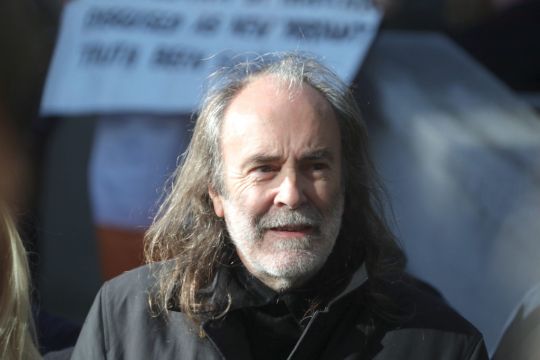John Waters described Kitty Holland in court as a very good reporter who had received poor leadership and had been badly advised and handled by her then Irish Times editor, Kevin O’Sullivan following a tip-off about the untimely death of Indian woman Savita Halappanavar in University Hospital Galway.
He told his counsel Feargal Kavanagh SC he found it baffling to hear Mr O’Sullivan state in video evidence to the court that 12 years after he published Ms Holland’s story he felt he and The Irish Times had been vindicated in breaking what they knew about the tragic event at the time.
Mr Waters, of Sandycove, Dublin, was giving evidence in his defence against a €75,000 defamation of character claim by Ms Holland, of Ranelagh, Dublin, who alleges he, although not specifically naming her, had accused her in a speech to a Renua conference as having lied in her report and of being the “journalist who started the lie". He has denied all of Ms Holland’s claims.
Then-editor O’Sullivan said he never had any concern about the veracity of Ms Holland’s original article and the newspaper had never been asked to print any clarification or correction.
“It was one of the biggest stories in my 10-year term as editor and is up there with one of the most important we have published,” he told Andrew Walker SC, who appeared with barrister Shane English and Lavelle Solicitors for Ms Holland.
Mr Waters said Kitty Holland had been put up to doing something that, with a little bit of good counsel, advice and reflection, would have been avoided. He felt The Irish Times feared they would have missed their scoop and had become impatient and had gone off at "half cock".
“If I had been editor of The Irish Times I would have set two or three reporters loose in Galway for several days to find and interview contacts in the hospital” he told Mr Kavanagh, who appeared with barristers Conor Rubalcava and Greg Murphy and solicitor Brendan Maloney.
He said that although the editor, deputy editors, the news editor, and at least one solicitor, later joined by the chief sub editor, had joined Ms Holland to discuss the story there had been a misdirection of the writer.
Mr Waters said most of Ms Holland’s article had been based on an interview with Ms Halappanavar’s husband and, although recorded, had not included certain statements made by him. He said there had been no evidence in the story that a consultant had said he could not terminate her pregnancy when there was a foetal heartbeat and because Ireland was a Catholic country.
It had transpired it had been the midwife who had stated this and Savita, a Hindu who the judge said was crying at the time, had said: “I am neither Irish or Catholic.”
Mr Waters told Mr Kavanagh he would have had no argument with The Irish Times headline on the story if it had been prefaced with the words “Husband states".
Earlier in his evidence, Mr Waters, a journalist and author and former columnist with The Irish Times, said when he first read Ms Holland’s report under the headline “Woman, denied termination, died in hospital,” he felt it was being used to take the newspaper “over the line” in the discussion leading up to the Eighth Amendment referendum.
He said the words spoken in his outline address to between 80 and 100 party members of Renua had not been aimed at Ms Holland.
The case continues on Tuesday.







